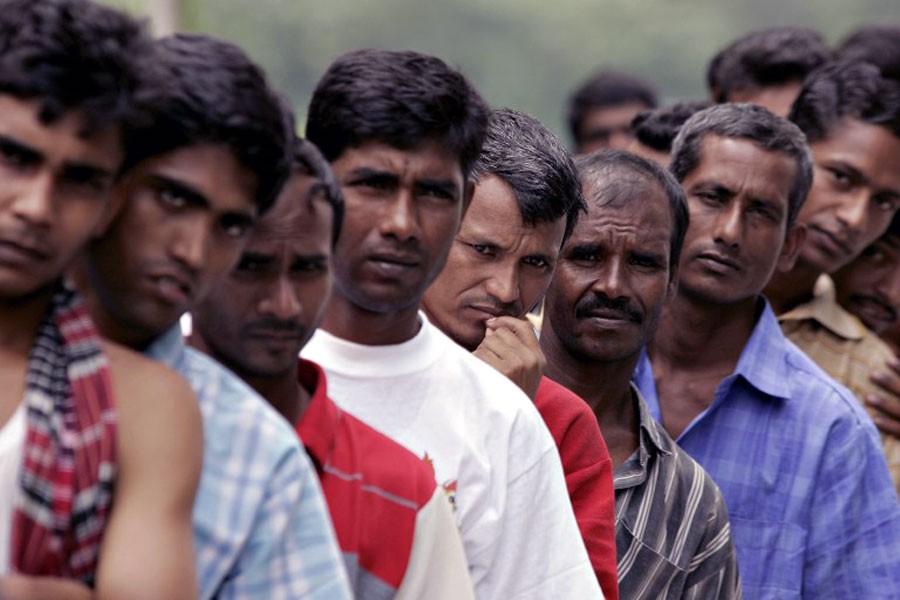Bangladesh has been waiting eagerly for the reopening of the Malaysian labour market to its workers for over four years. Hopefully, the agreement reached between the two countries during the visit of Malaysian Human Resource Minister M Saravanan to restart the recruitment would bring an end to the anxious wait. Recruiting Bangladeshi workers to Malaysia got stalled at least a couple of occasions in the recent past despite similar agreements because of procedural complexities. Malaysia enforced a ban on the recruitment of workers from Bangladesh in September 2018, following alleged syndication of the recruitment process.
Malaysia reportedly has expressed its willingness to recruit half a million workers over five years, with 200,000 going to that country during the next 12 months. Terms and conditions relating to recruitment, as explained to the media by Bangladesh Minister for Expatriates' Welfare and Overseas Employment Imran Ahmad, will be easier this time. Though wages will not be that attractive, around Tk 30,000 per month, workers will be spending less on their recruitment. Malaysia will bear most of the recruitment charges. It will also be a good omen for the country's reserve situation if Malaysia starts recruiting workers during the current month. The reserve has come under pressure in recent months because of soaring commodity prices in the international market and a fall in inward remittances. To tide over the situation, the central bank has already initiated some measures, including restrictions on high-end and unnecessary imports.
The economic activities in Malaysia, the fifth-largest manpower market for Bangladeshi workers, are now in full gear, as it has reopened its door to foreign workers and tourists after two years of pandemic prevalence. It needs expatriate workers for palm plantations, agriculture, manufacturing, mining, services and construction works. Bangladesh, with an abundant supply of unskilled/semi-skilled manpower, can meet a good part of that requirement. While welcoming the reopening of the Malaysian labour market, Bangladesh authorities, however, should not forget to protect the interests of its nationals working in an alien country. They need to be watchful, in case, employers---this is also true for many other countries including the Middle East--- breach the conditions written in the employment contracts. The employers often deprive the foreign workers of their due.
The formal start of recruitment of Bangladeshi workers, hopefully, would reduce attempts to sneak into Malaysia and work there illegally. The government should also try to convince its Malaysian counterpart to offer amnesty to illegal Bangladesh workers in detention camps or hiding and allow them to work legally. Another important issue--- the role of the manpower recruiting agencies---can hardly be ignored when it comes to sending workers to Malaysia. The export of manpower to Malaysia was supposed to start in December last under a fresh deal signed between the two countries. But that did not happen due to alleged malpractices by a so-called syndicate of recruiting agencies. From now on, the Malaysian government would select agents for recruiting Bangladeshi workers. This time, hopefully, recruiters would not create any obstacle to the smooth despatch of migrant workers.


